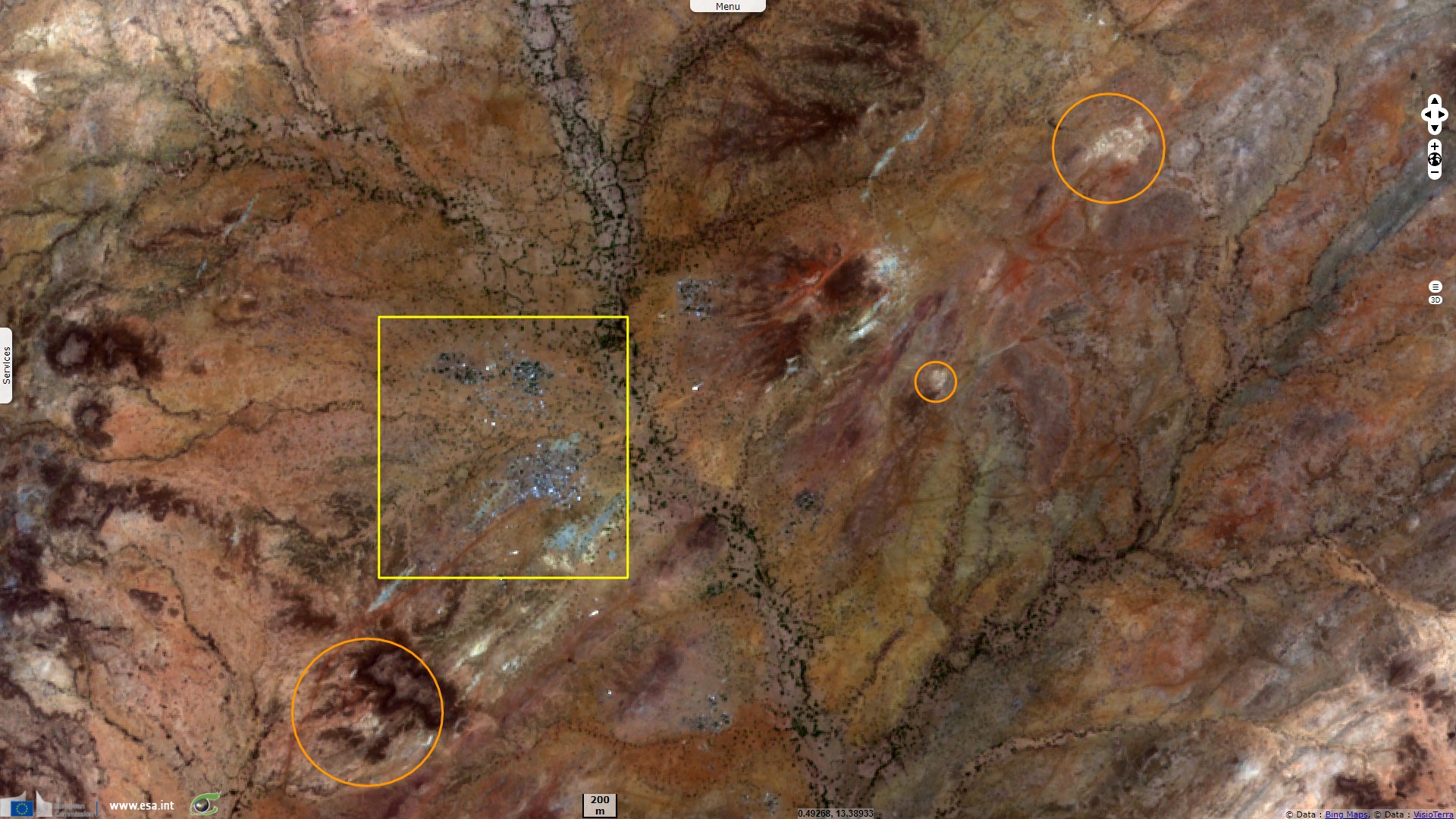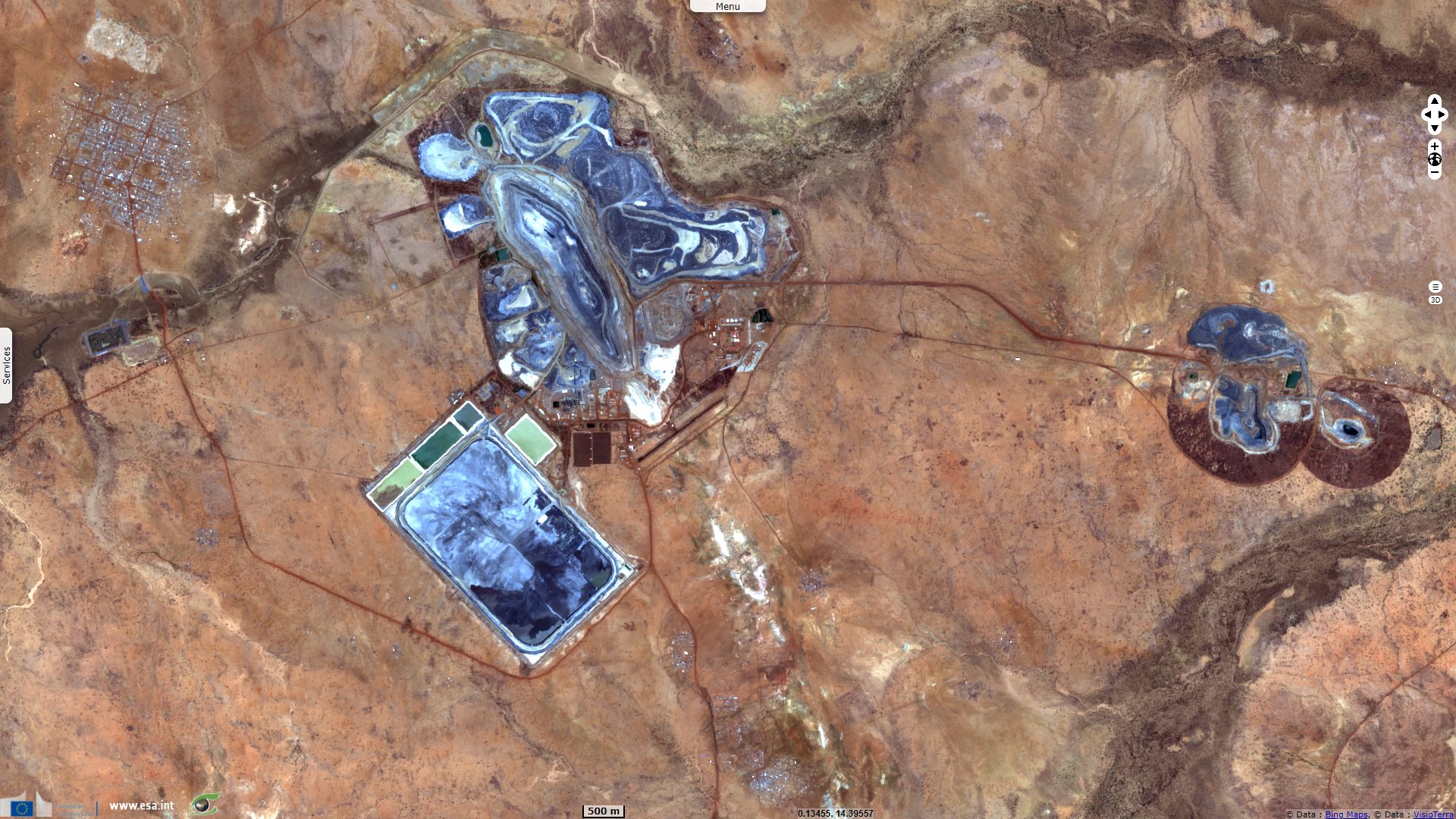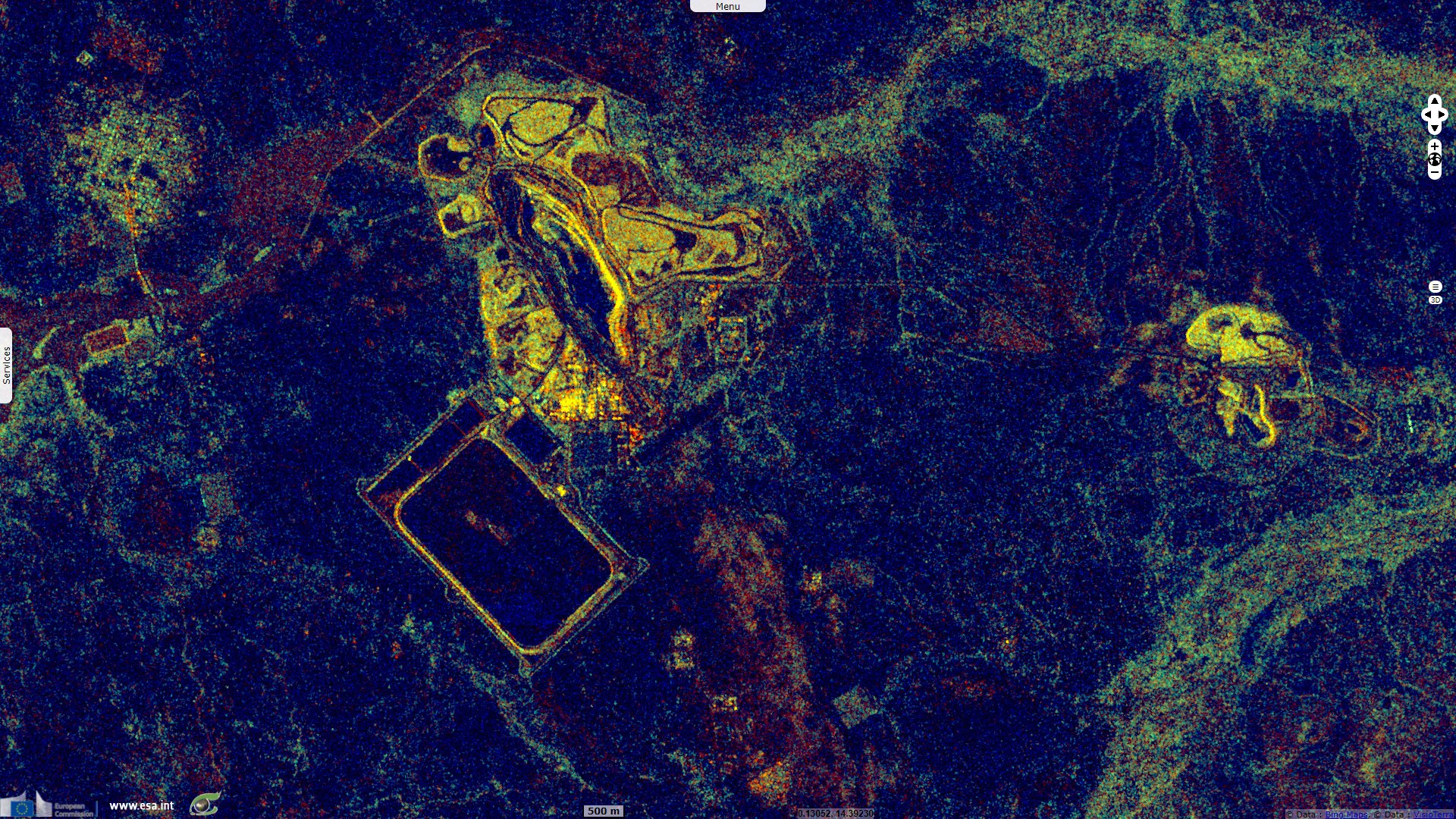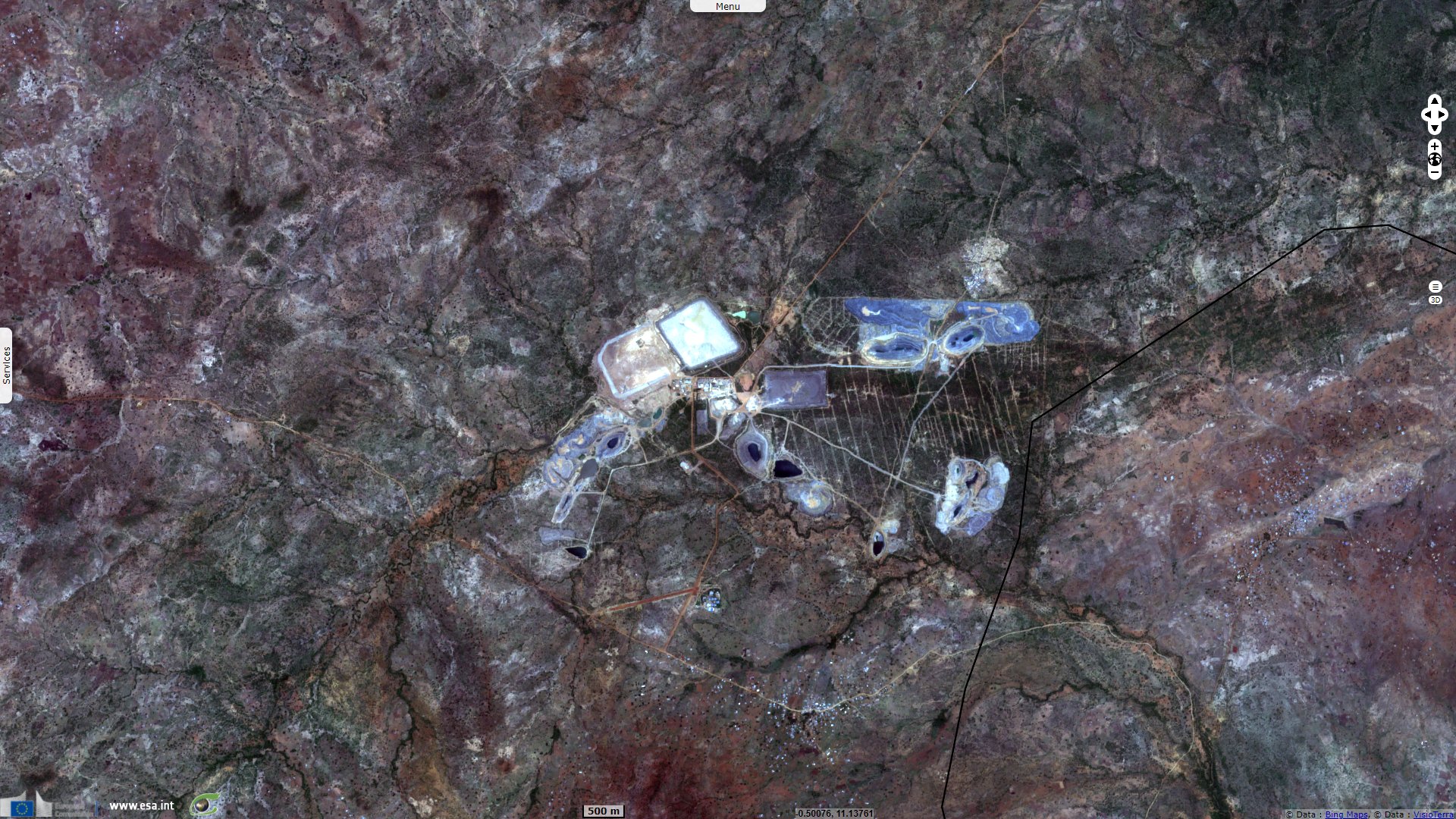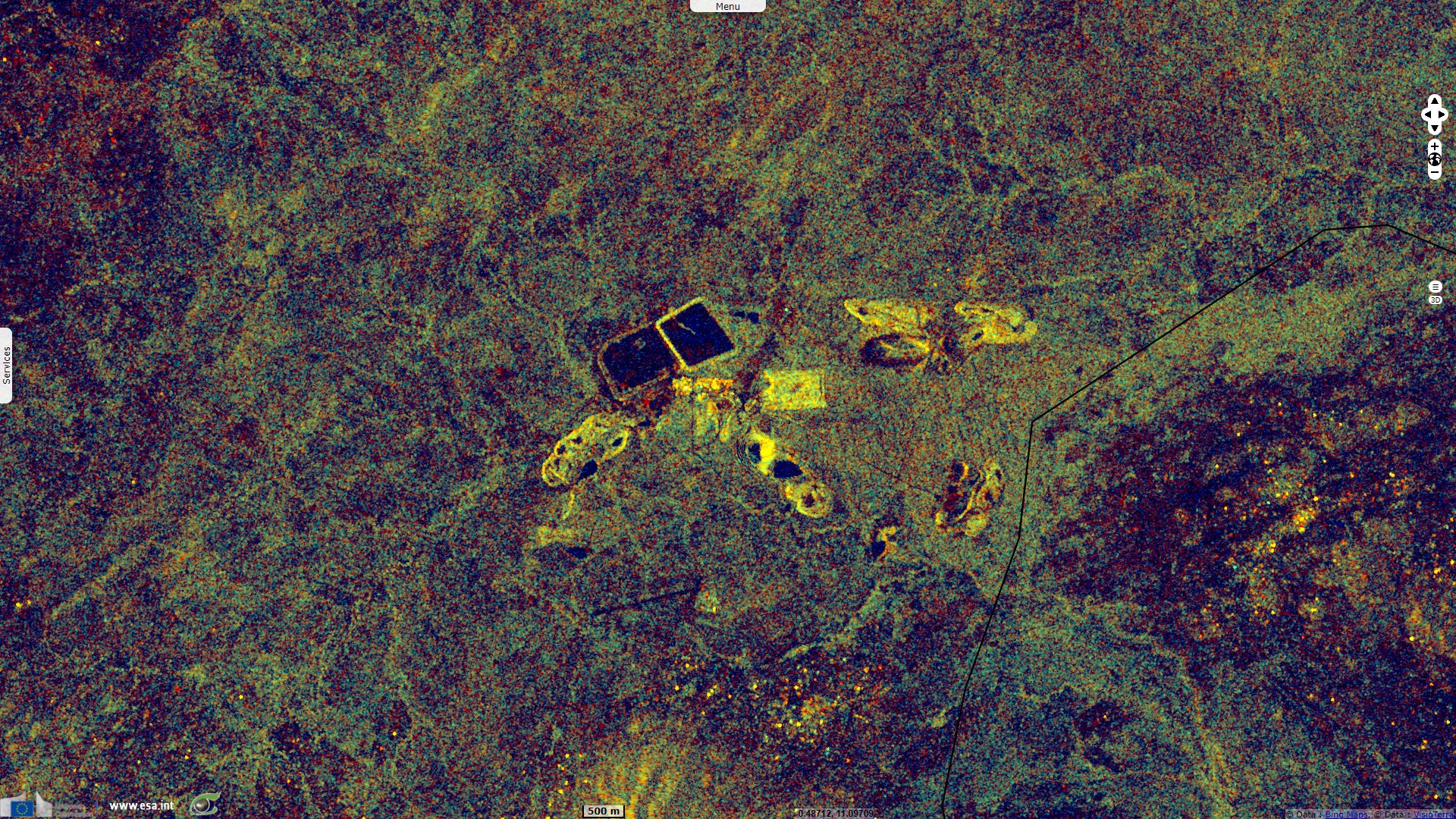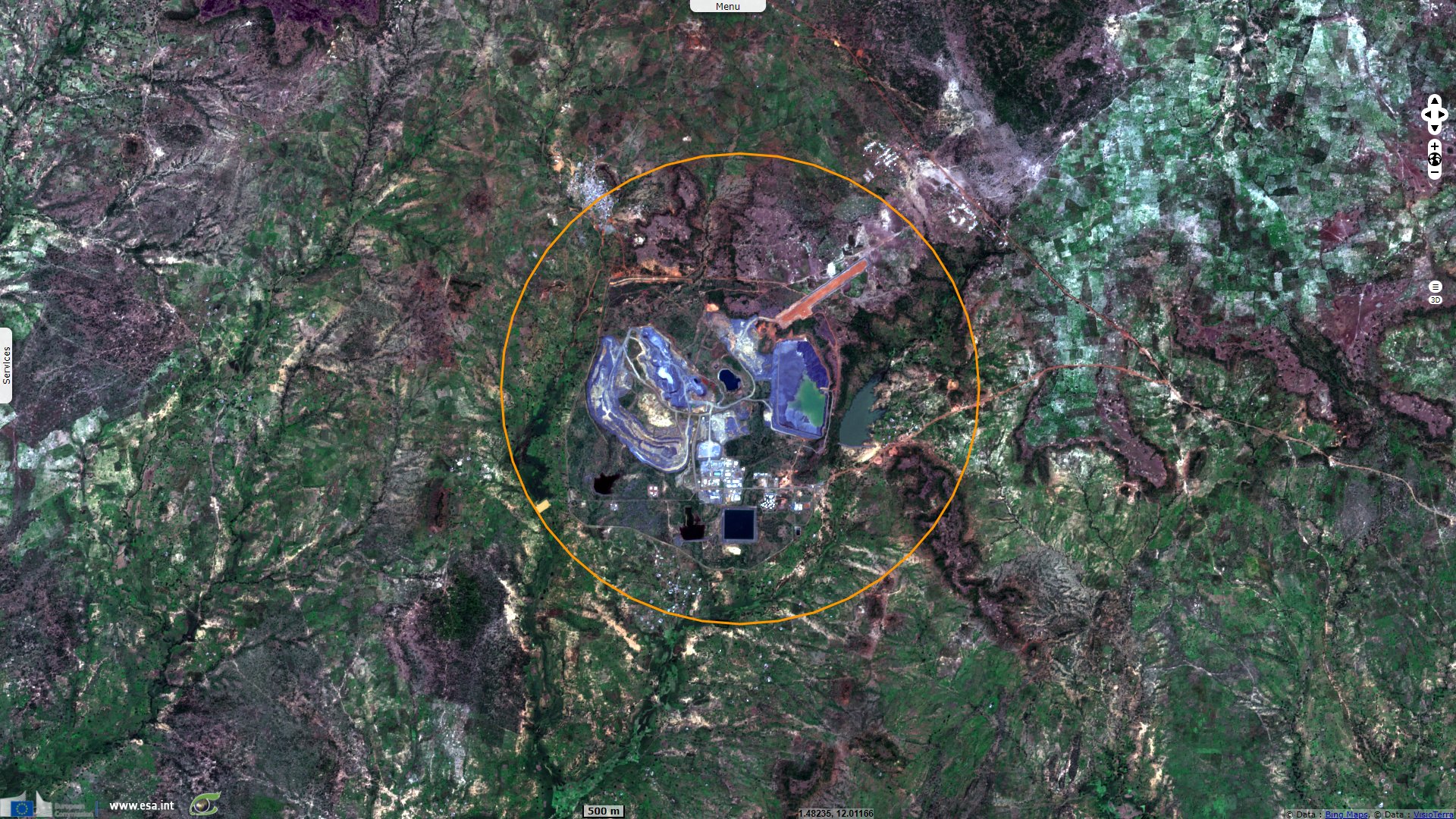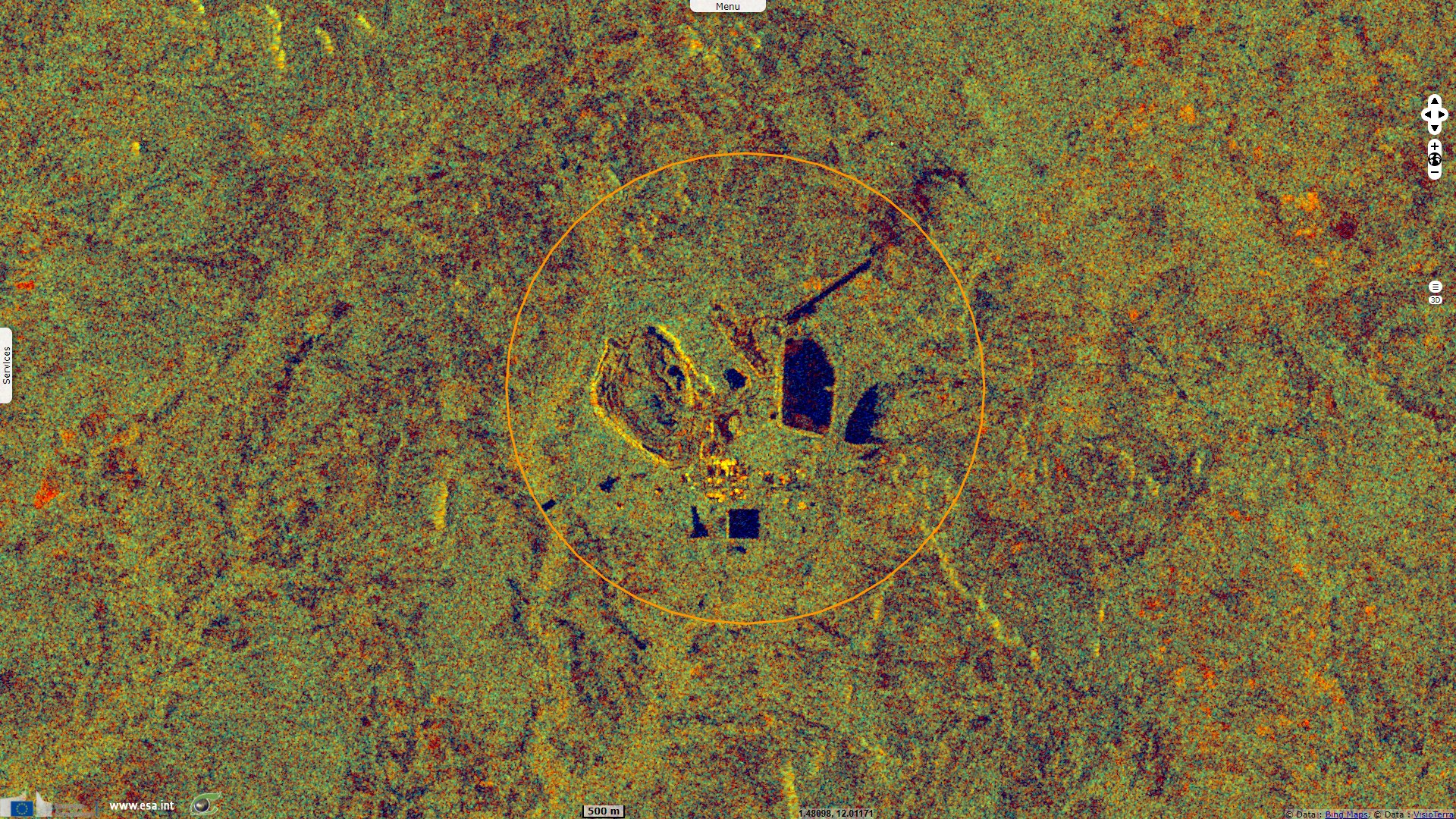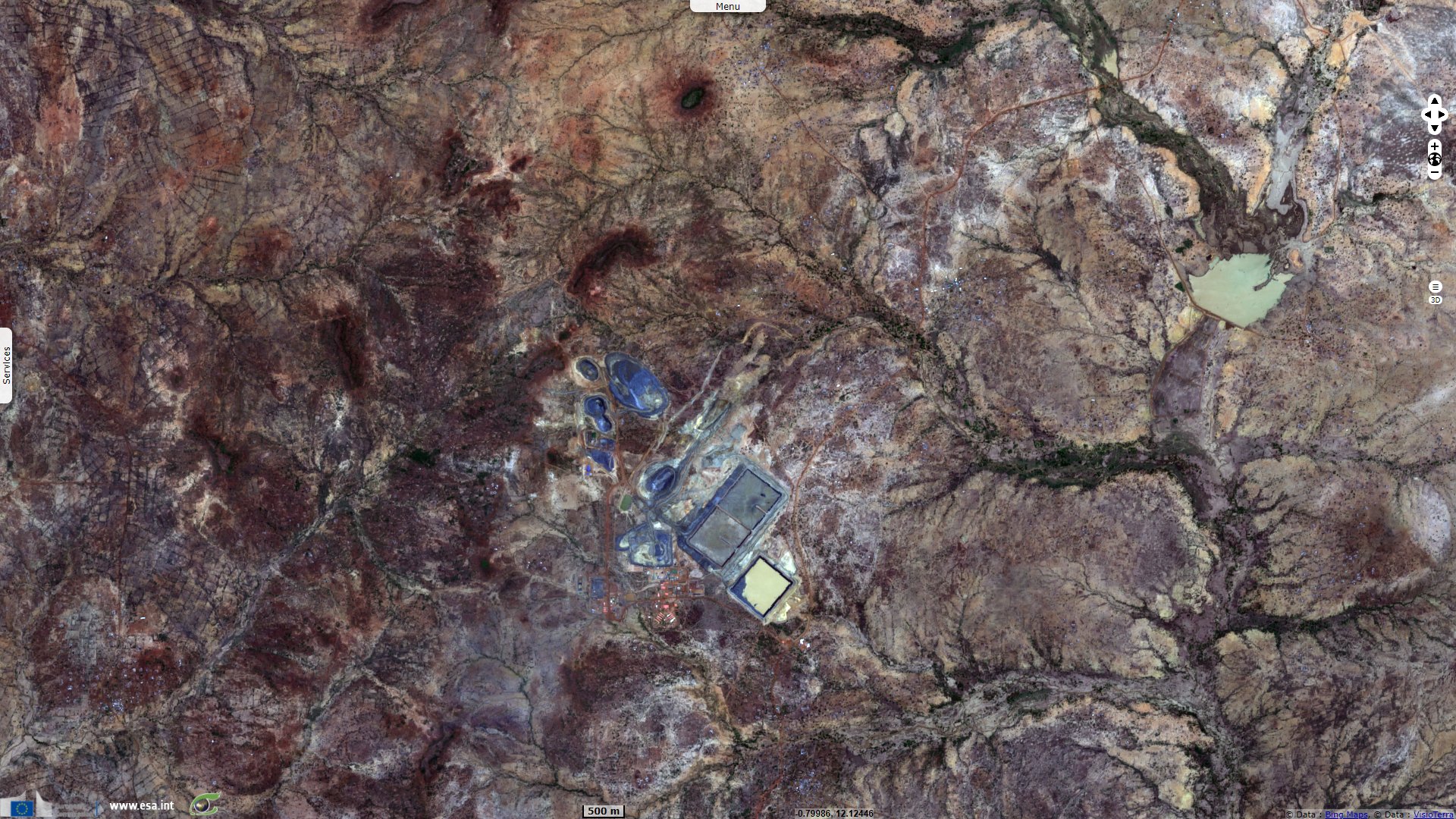Deadly attack on a gold mining city, Burkina Faso
Sentinel-1 CSAR IW acquired on 08 April 2015 at 18:11:17 UTC
...
Sentinel-1 CSAR IW acquired on 30 May 2021 from 18:11:21 to 18:12:11 UTC
Sentinel-2 MSI acquired on 31 May 2021 at 10:15:59 UTC
Sentinel-2 MSI acquired on 05 June 2021 at 10:20:21 UTC
...
Sentinel-1 CSAR IW acquired on 30 May 2021 from 18:11:21 to 18:12:11 UTC
Sentinel-2 MSI acquired on 31 May 2021 at 10:15:59 UTC
Sentinel-2 MSI acquired on 05 June 2021 at 10:20:21 UTC
Keyword(s): Security, natural ressources, mine, climate change, Burkina Faso
Burkina Faso mourns after at least attackers killed 174 people in the village of Solhan. Elian Peltier of the New-York Times reports: "Armed assailants killed more than 100 people in an attack on a village in northern Burkina Faso, the government said on Saturday, burning houses and leaving many more injured in one of the deadliest assaults the West African nation has seen in years."
"The attackers struck early Saturday [5 June] morning, first at a gold mine near the village of Sobha, near the border with Niger, according to Rida Lyammouri, a Washington-based expert, before then going after civilians." Radio France International details: "The attackers also set fire to vehicles and shops after looting everything they could. Then they left quietly at dawn before the police arrived on the scene three hours later, according to the mayor of Sebba."
"Solhan, a small community about 15 kilometres from Sebba, the main city in Yagha province, has been hit with numerous attacks in recent years." reminds Al Jazeera. According to Radio France International: "The gold rush has turned this village in northern Burkina Faso into a crossroads where people from different tribes and nationalities live together, according to the mayor of Sebba, Hamadi Boubakar: 'Solhan is a big village, there are many people living there because of the gold, more than 30 000 people. The people who were attacked come from all over the province.'
Ten kilometres away, three weeks before, "On May 14, Defence Minister Cheriff Sy and military top brass visited Sebba to assure people that life had returned to normal, following a number of military operations. Last year, the government enlisted the help of volunteer militiamen to help the army but they have incurred retaliation by the rebels who attack them and the communities they help." notes Al Jazeera.
Reuters adds: "Some 1.2 million people in Burkina Faso have been forced to flee their homes because of the long-running conflict, as armed groups step up attacks on the army and civilians despite the presence of thousands of French troops and other international and regional forces across the Sahel. Armed groups have driven religious and ethnic tensions between farming and herding communities in the three countries to boost recruitment among marginalised communities."
"Despite the presence of thousands of U.N. peacekeepers, attacks by jihadists linked to al Qaeda and Islamic State in West Africa's Sahel region have risen sharply since the start of the year, particularly in Burkina Faso, Mali and Niger, with civilians bearing the brunt."
"The latest attack pushes the number killed by armed Islamists in the Sahel region to over 500 since January, according to Human Rights Watch's West Africa director, Corinne Dufka. 'The dynamic is the jihadists come in, they overpower the civil defence post and engage in collective punishment against the rest of the village - it's a pattern we've seen everywhere this year,' Dufka said. In March, attackers killed 137 people in coordinated raids on villages in southwestern Niger."
While the artisanal gold mining community of Solhan is an easy target, it is not the only mining site targeted by Islamist groups. David Lewis relates for Reuters how industrial mines have been affected: "As jihadists wreaked ever more havoc in the last two years, mining firms in Burkina Faso rolled out extra security measures." "That has added millions of dollars to security costs for foreign companies, mainly from Canada and Australia, operating in the West African nation where industrial miners are forecast to produce 60 tonnes of gold this year."
In October 2020, Endeavour Mining restarted the Boungou mine in Burkina Faso, which was closed in November 2019 after an attack on a convoy carrying employees. The attack claimed the lives of 39 people. At the time, the mine was owned by Quebec-based Semafo, which was acquired by Endeavour in July this year.
"'This is the deadliest incident targeting the mining industry, or any private businesses, in the Sahel since the 2013 In Amenas hostage crisis,' said Vincent Rouget, an analyst at Control Risks Group, referring to an attack on a gas plant in the Algerian desert that killed dozens of foreign hostages."
"The region is seen as the gold industry’s final frontier, with large untapped reserves. Lured by relatively low-cost mining, Semafo and others like Barrick, IAMGOLD, Endeavour Mining, and Resolute Mining, have invested billions there over the last decade - but expansion by al Qaeda and Islamic State-linked militants could force them to rethink."
The ability of these groups to recruit is not only explainable by a political agenda or a retaliation cycle according to Sam Mednick, in July 2020 he explained in Al Jazeera how impoverishment caused by climate change may have a role: "Climate change has played a part in the 'genesis of the crisis affecting the Central Sahel' according to the International Crisis Group. Droughts in the 1970s and 1980s changed agro-pastoral dynamics in favour of the grain and vegetable farmers who were less harshly affected than the marginalised herder communities. Years of drought devastated the cattle of herdsmen, who depended on moving their livestock from one grazing ground to another."
"Attacks linked to al-Qaeda and ISIL have recently made Burkina Faso the epicentre of the crisis. For years, the once peaceful nation largely stayed out of the conflict inflicted on its neighbours. But in 2014, the overthrow of the country’s longtime president, Blaise Compaore, which also saw the dismantling of the special forces unit, created a path for attacks." "Armed groups exacerbate existing grievances over land, resources and ethnicity, perpetrating violence and driving communities into desperation."
"Mamoudou Ouedraogo, founder of the Association for Education and Environment, a local aid group with more than 20 years of experience working on environmental issues across the country, Ouedraogo has noticed a direct correlation between climate change and people being recruited into armed groups. 'When you have lost everything, even food, you are on the edge of despair and as a consequence [people] will be ready to find a solution wherever possible, including terrorists,' he said. A lot of recruits come from the most impoverished parts of the country, he added. Yet some people who have been attacked by them say that no matter how desperate they become they would never join.", the Al Jazeera article concludes.


